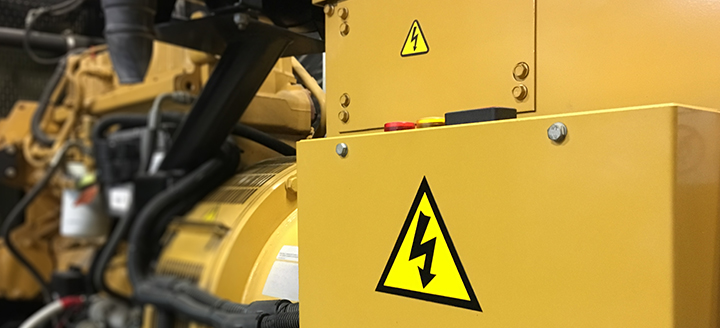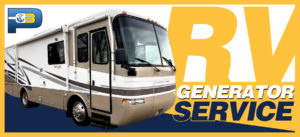May is National Electrical Safety Month, which makes this an excellent opportunity to discuss generator safety! No matter the size or output of your generator, it should always demand your caution in its handling and use. Failure to do so could result in adverse consequences such as carbon monoxide poisoning, electrocution, burns or worse! Here are just a few tips towards safely operating your generator, whether it be a portable generator, your home generator, or the commercial generator at your facility.
Portable Generator Safety
- Be sure to always start and stop your generator when no electrical loads are connected.
- Never overload your generator, be sure to never exceed its output rating or you could end up seriously damaging your appliances and electrical devices.
- Never let your generator run indoors or in an enclosed area. The CO your generator emits is capable of causing severe injury or death in a matter of minutes depending on how confined the space is. Always place your generator at the distance specified by local code from your building, making sure to aim the engine exhaust in the opposite direction of the structure.
- Do not operate your generator in the rain or near pooling water. Water and electricity are always a deadly combination, for both your life and the life of your generator.
- Only refuel your generator after it has been turned off and had a chance to cool. If you were to accidently spill some gasoline on your generator’s hot engine, it could potentially ignite into flames.
- Invest in a generator interlock kit. This device allows for the seamless connection from your generator’s power output to your home’s electrical grid. Just like how a transfer switch operates with a fixed generator, an interlock kit isolates generator power from grid power, preventing the backfeeding of unfiltered electricity that may cause electrical overload of appliances, and potentially injuring any utility workers making repairs on the nearby grid. Contact us to learn more about installing a generator interlock kit in your home!
- If using your portable generator in the field, be sure to always use grounded electrical cords to prevent risk of electrocution. Never use cables with exposed wiring. Also do not place your generator on dry brush or near other flammable substances.
Residential Generator Safety
- Make sure to periodically check on your generator to make sure it hasn’t been covered In debris, encroached on by overgrowth, or even become a home for rodents. All of these could result in potential fire hazards!
- Be sure to have an automatic transfer switch installed by a licensed professional. Not only will this device allow for seamless transition from grid to generator power in the case of a power outage, but it will also prevent your generator from backfeeding the grid. Manual transfer switches are also available, but we recommend automatic transfer switches for our residential customers mainly for their convenience and mitigation of user error.
- Just like your car, your home generator requires routine maintenance to properly function. A lack of service could result in the mechanical breakdown of your generator, leaving you in the dark when it is needed most. Prevent the headache of trying to remember when to service your generator with our residential generator maintenance subscription!
- Be sure to invest in a battery-powered carbon monoxide alarm. Seal off all of the ways air could enter your home near your generator. If your generator was properly installed at the correct distance from your home, the chance of carbon monoxide entering your home is slight, but it is always a good idea to be prepared regardless.
- Be sure to read your generator’s owner manual for manufacturer specific safety tips and operating procedures. Cummins, Kohler, Generac, Gillette, and others all have their specific maintenance recommendations.
Commercial Generator Safety
- Commercial generators generate a lot of electricity, and plenty of noise to accompany it. Be sure to wear ear protection when working near an industrial generator, especially if it’s in an enclosed generator room. Consider placing the generator in an enclosure to not only protect it from external elements, but for sound attenuation purposes as well!
- Just like with all heavy machinery, only allow trained individuals to operate and maintain your generator.
- As with residential generators, routine maintenance is vital for the proper operation of your commercial generator, as well as the safety of those who operate it. Contact us to learn more about our commercial generator maintenance subscriptions to provide you the peace of mind knowing your generator is always properly maintained!
- Always keep fire extinguisher near the generator in case of emergency.
- Be sure to always disconnect or shut down the generator before refueling. Store fuel in a cool, dry place away from sunlight to prevent fuel issues.
We hope these generator safety tips will prove useful to you, regardless of which type of generator you have. As always, you can trust the P3 team to handle any generator issue that may arise, no matter the size, make or model. After all, there is no better generator safety tip than leaving these challenges to trained professionals!




